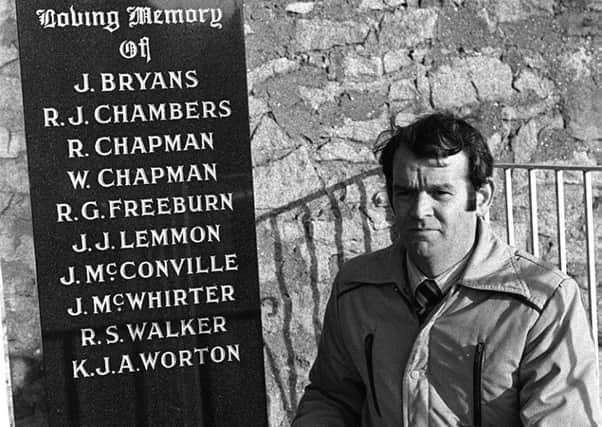Kingsmills inquest sits in private on secret files


The Protestant workmen were shot dead by the IRA near Kingsmills as they travelled home from work in 1976.
A legacy inquest into the massacre has been running intermittently since it officially opened in May 2016.
Advertisement
Hide AdAdvertisement
Hide AdThursday’s hearing took place almost entirely in private to consider Public Interest Immunity applications (PII). These may be used when it is believed disclosure of state documents, relating to matters such as national security or intelligence agents, could be harmful to the public interest.
Before the hearing went behind closed doors, Fiona Doherty QC acting for relatives and sole survivor Alan Black, told the inquest that there was “an issue of openness and transparency and the ability of the next of kin to ... have access to all possible evidence on the death of their loved ones”.
She also advocated “the least possible invasion into the papers as possible” in terms of redactions.
The lawyer complained there was an ”officer’s decision log” relating to redaction of a bundle of documents which was “indecipherable”, and asked for a clear version to be supplied for transparency.
Advertisement
Hide AdAdvertisement
Hide AdThere were also a series of “email chains” about suspects, she said, in which “it is clear that information is being sought on news in relation to individuals”.
The names were all redacted but no cipher code had been placed against each one. So far in the inquest all suspects have been assigned a cipher so that mentions of them in strings of documents can be pieced together while protecting their identity.
She requested that if these were new suspects that new ciphers be created for them or if they were existing suspects, the previous ciphers be applied to the emails “because these people have obviously been of great interest to police”.
Ms Doherty also referred to a document which referred to “PIRA monitoring the movements of the work van”.
Advertisement
Hide AdAdvertisement
Hide AdShe asked to be directed to where she could find this document in her files of supplied information or that she be provided with a copy of the document if it has not yet been made available to her.
Barrister Richard Smith, also acting for relatives, concurred. Regarding the officer’s decision log on redaction of a bundle of documents, he said: “Those assessing it are in a unique position to decide if they are wheat or chaff.”
In February the coroner warned the Ministry of Defence to “put up or shut up” over “prevarication” in the disclosure of intelligence files to the inquest.